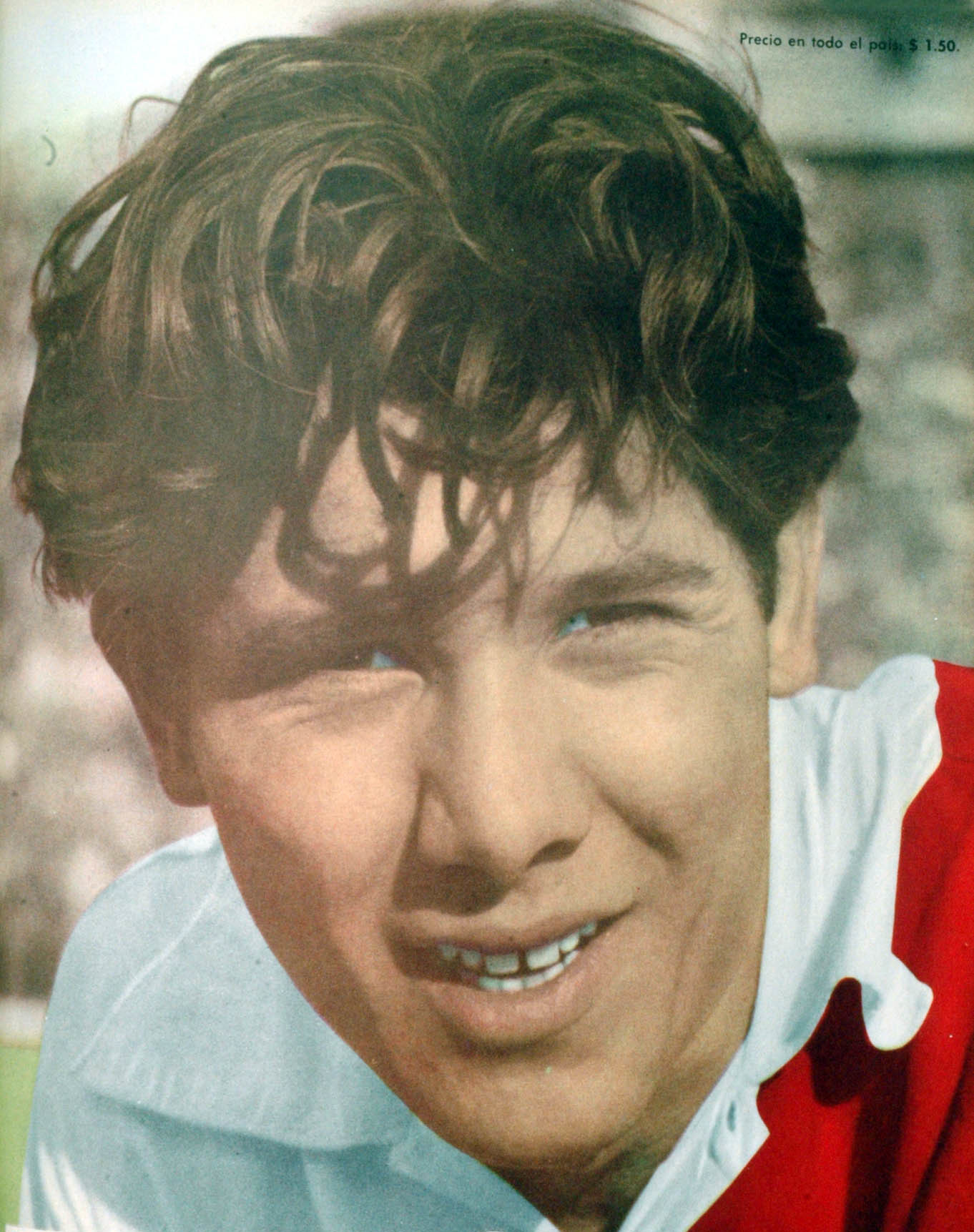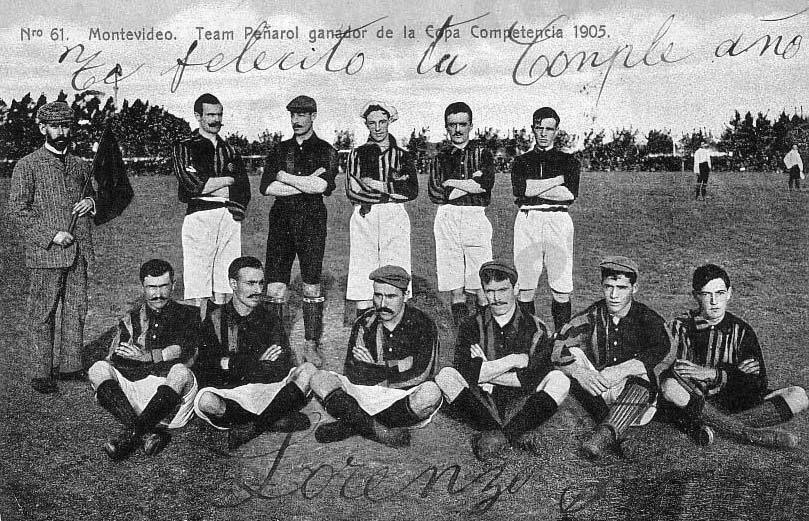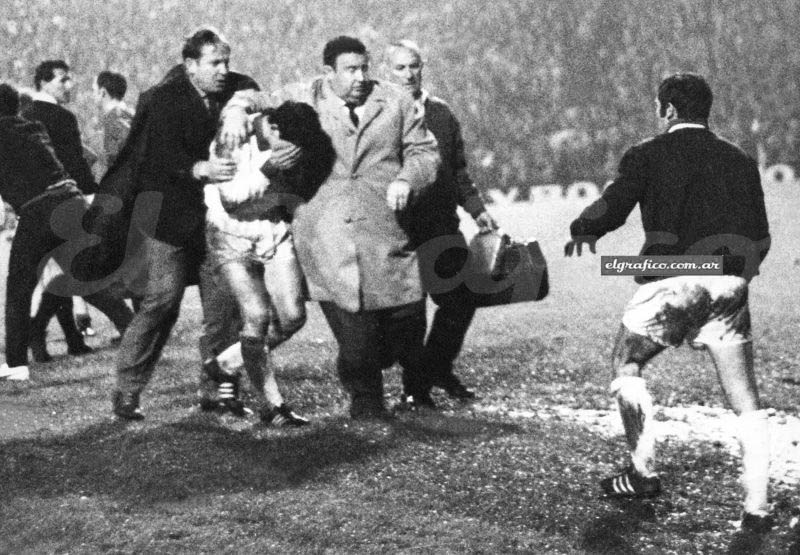|
Luis Del Sol
Luis del Sol Cascajares (6 April 1935 – 20 June 2021) was a Spanish football midfielder and manager. He played a total of 112 La Liga games for Betis and Real Madrid (28 goals scored), winning five major titles with the latter side and earning several Ballon d'Or nominations. He later had brief spells as manager with the former club. Del Sol represented Spain in two World Cups, in the 1960s. Club career Betis and Real Madrid Del Sol was born in Arcos de Jalón, Province of Soria, relocating with his family to Andalusia at age two months. In his country, he played for Real Betis and Real Madrid; with the former club he was part of the squad that was promoted to La Liga (1958), appearing in 40 games in that level over the course of one and a half seasons and scoring six goals. Signing with the ''Merengues'' in April 1960 for 6 million pesetas, del Sol netted a career-best 17 times in his first full season, while not missing one single minute of action in his 29 appearances ... [...More Info...] [...Related Items...] OR: [Wikipedia] [Google] [Baidu] |
Arcos De Jalón
Arcos de Jalón is a municipality located in the province of Soria, Castile and León, Spain. , it had a population of 1,782. List of settlements included in the municipality * Aguilar de Montuenga * Chaorna * Jubera * Judes * Iruecha * Layna * Montuenga de Soria * Sagides * Somaén * Urex de Medinaceli * Utrilla Utrilla is a surname. Notable people with the surname include: * Alejandro Utrilla Belbel (1889-1963), Spanish cavalry officer * Carlos Utrilla (born 1994), Mexican footballer * David Utrilla, Peruvian businessman * Jorge Baldemar Utrilla (born 19 ... * Velilla de Medinaceli References Municipalities in the Province of Soria {{Soria-geo-stub ... [...More Info...] [...Related Items...] OR: [Wikipedia] [Google] [Baidu] |
FIFA World Cup
The FIFA World Cup, often simply called the World Cup, is an international association football competition contested by the senior men's national teams of the members of the ' ( FIFA), the sport's global governing body. The tournament has been held every four years since the inaugural tournament in 1930, except in 1942 and 1946 when it was not held because of the Second World War. The reigning champions are Argentina, who won their third title at the 2022 tournament. The format involves a qualification phase, which takes place over the preceding three years, to determine which teams qualify for the tournament phase. In the tournament phase, 32 teams compete for the title at venues within the host nation(s) over about a month. The host nation(s) automatically qualify to the group stage of the tournament. As of the 2022 FIFA World Cup, 22 final tournaments have been held and a total of 80 national teams have competed. The trophy has been won by eight national teams. ... [...More Info...] [...Related Items...] OR: [Wikipedia] [Google] [Baidu] |
Serie A
The Serie A (), also called Serie A TIM for national sponsorship with TIM, is a professional league competition for football clubs located at the top of the Italian football league system and the winner is awarded the Scudetto and the Coppa Campioni d'Italia. It has been operating as a round-robin tournament for over ninety years since the 1929–30 season. It had been organized by the Direttorio Divisioni Superiori until 1943 and the Lega Calcio until 2010, when the Lega Serie A was created for the 2010–11 season. Serie A is regarded as one of the best football leagues in the world and it is often depicted as the most tactical and defensively sound national league. Serie A was the world's strongest national league in 2020 according to IFFHS, and is ranked fourth among European leagues according to UEFA's league coefficient – behind the Bundesliga, La Liga and the Premier League, and ahead of Ligue 1 – which is based on the performance of Italian clubs in the Champ ... [...More Info...] [...Related Items...] OR: [Wikipedia] [Google] [Baidu] |
Turin
Turin ( , Piedmontese language, Piedmontese: ; it, Torino ) is a city and an important business and cultural centre in Northern Italy. It is the capital city of Piedmont and of the Metropolitan City of Turin, and was the first Italian capital from 1861 to 1865. The city is mainly on the western bank of the Po (river), Po River, below its Susa Valley, and is surrounded by the western Alps, Alpine arch and Superga Hill. The population of the city proper is 847,287 (31 January 2022) while the population of the urban area is estimated by Larger Urban Zones, Eurostat to be 1.7 million inhabitants. The Turin metropolitan area is estimated by the Organisation for Economic Co-operation and Development, OECD to have a population of 2.2 million. The city used to be a major European political centre. From 1563, it was the capital of the Duchy of Savoy, then of the Kingdom of Sardinia ruled by the House of Savoy, and the first capital of the Kingdom of Italy from 1861 to 1865. T ... [...More Info...] [...Related Items...] OR: [Wikipedia] [Google] [Baidu] |
Omar Sívori
Enrique Omar Sívori (, ; 2 October 1935 – 17 February 2005) was an Italian-Argentine football player and manager who played as a forward. At club level, he is known for his successful time with Italian side Juventus during the late 1950s and early 1960s, where he won three Serie A titles among other trophies; he also played for River Plate in Argentina and Napoli in Italy. He made his international debut for Argentina, winning the 1957 South American Championship. Later in his career, he represented Italy and took part in some of the 1962 World Cup. After his retirement as player, he coached several teams in Argentina. Regarded as one of the greatest players of his generation and as one of the greatest football players of all time, Sívori was known for his outstanding skill, speed, goalscoring ability, technique, creativity, and his footballing talent was widely acclaimed. He won the ''South American Championship Best Player'' award in 1957 and the coveted European Footbal ... [...More Info...] [...Related Items...] OR: [Wikipedia] [Google] [Baidu] |
Squad Number (association Football)
Squad numbers are used in association football to identify and distinguish players that are on the field. number (sports), Numbers very soon became a way to also indicate position, with starting players being assigned numbers 1–11, although in the modern game they are often influenced by the players' favourite numbers and other less technical reasons, as well as using "surrogates" for a number that is already in use. However, numbers 1–11 are often still worn by players of the previously associated position. As national leagues adopted squad numbers and game tactics evolved over the decades, numbering systems evolved separately in each football scene, and so different countries have different conventions. Still, there are some numbers that are universally agreed upon being used for a particular position, because they are quintessentially associated with that role. For instance, "1" is frequently used by the starting Goalkeeper (association football), goalkeeper, as the go ... [...More Info...] [...Related Items...] OR: [Wikipedia] [Google] [Baidu] |
Peñarol
Club Atlético Peñarol (; English: ''Peñarol Athletic Club'') —also known as ''Carboneros'', ''Aurinegros,'' and (familiarly) ''Manyas''— is a Uruguayan sports club from Montevideo. The name "Peñarol" comes from the Peñarol neighbourhood on the outskirts of Montevideo. Throughout its history the club has also participated in other sports, such as basketball and cycling. Its focus has always been on football, a sport in which the club excels, having never been relegated from the top division. In international competition, Peñarol is the third-highest Copa Libertadores winner with five victories and shares the record for Intercontinental Cup victories with three. In September 2009, the club was chosen as the South American Club of the Century by the IFFHS . Apart from men's football, other active sports sections of Peñarol are rugby union, futsal, women's football, and athletics. History Origins On September 28, 1891, employees of the Central Uruguay Railwa ... [...More Info...] [...Related Items...] OR: [Wikipedia] [Google] [Baidu] |
Intercontinental Cup (football)
The European/South American Cup, more commonly known as the Intercontinental Cup and from 1980 to 2004 as the Toyota European/South American Cup (abbreviated as Toyota Cup) for sponsorship reasons, was an international association football, football competition endorsed by UEFA (Europe) and CONMEBOL (South America), contested between representative clubs from these confederations (representatives of most developed continents in the football world), usually the winners of the UEFA Champions League and the South American Copa Libertadores. It ran from 1960 to 2004, when it was succeeded by the FIFA Club World Cup, FIFA Club World Championship, although they both ran concurrently in 2000. From its formation in 1960 to 1979, the competition was as a two-legged tie, with a playoff if necessary until 1968, and Penalty kick (association football), penalty kicks later. During the 1970s, European participation in the Intercontinental Cup became a running question due to controversial eve ... [...More Info...] [...Related Items...] OR: [Wikipedia] [Google] [Baidu] |
1960 Intercontinental Cup
The 1960 Intercontinental Cup was the inaugural edition of the matchup between the reigning European football champion and the reigning South American football champion. The idea was born of discussions between Pierre Delauney, UEFA secretary and José Ramón de Freitas, CONMEBOL secretary. The two-legged tie was contested between Spanish club Real Madrid ( 1959–60 European Cup winner) and Uruguayan club Peñarol ( 1960 Copa Libertadores winner). The first match-up ended with ''Los Merengues'' holding Peñarol to a 0–0 draw at Montevideo's Estadio Centenario, and then soundly winning 5–1 in the return leg at Madrid's Santiago Bernabéu thanks to the marvelous performances of Alfredo Di Stéfano and Ferenc Puskás. [...More Info...] [...Related Items...] OR: [Wikipedia] [Google] [Baidu] |
1960–61 La Liga ...
The 1960–61 La Liga was the 30th season since its establishment. The season started on September 11, 1960, and finished on April 30, 1961. Real Madrid won their seventh title. Team locations League table Results Relegation play-offs Pichichi Trophy External links Official LFP Site {{DEFAULTSORT:1960-61 La Liga La Liga seasons, 1960 1961 1960–61 in Spanish football leagues Spain , image_flag = Bandera de España.svg , image_coat = Escudo de España (mazonado).svg , national_motto = ''Plus ultra'' (Latin)(English: "Further Beyond") , national_anthem = (English: "Royal March") , i ... [...More Info...] [...Related Items...] OR: [Wikipedia] [Google] [Baidu] |
ABC (newspaper)
''ABC'' () is a Spanish national daily newspaper. It is the second largest general-interest newspaper in Spain, number one in Madrid, and the oldest newspaper still operating in Madrid. Along with '' El Mundo'' and '' El País'', it is one of Spain’s three newspapers of record. History and profile ''ABC'' was first published in Madrid on 1 January 1903 by Torcuato Luca de Tena y Álvarez-Ossorio. The founding publishing house was Prensa Española, which was led by the founder of the paper, Luca de Tena. The paper started as a weekly newspaper, turning daily in June 1905. In 1928 ABC had two editions, one for Madrid and the other for Seville. The latter was named ''ABC de Sevilla''. On 20 July 1936, shortly after the Spanish Civil War began, ''ABC'' in Madrid was seized by the republican government, which changed the paper's politics to support the Republicans. The same year '' Blanco y Negro'', a magazine, became its supplement. The ''ABC'' printed in Seville was supportive ... [...More Info...] [...Related Items...] OR: [Wikipedia] [Google] [Baidu] |
Spanish Peseta
The peseta (, ), * ca, pesseta, was the currency of Spain between 1868 and 2002. Along with the French franc, it was also a ''de facto'' currency used in Andorra (which had no national currency with legal tender). Etymology The name of the currency originally comes from ''peceta'', a Catalan diminutive form of the (Catalan) word ''peça'' (lit. ''piece'', i.e. a coin), not from the Spanish ''peso'' (lit. ''weight''). The word ''peseta'' has been known as early as 1737 to colloquially refer to the coin worth 2 ''reales provincial'' or of a peso. Coins denominated in "pesetas" were briefly issued in 1808 in Barcelona under French occupation; see Catalan peseta. Symbol Traditionally, there was never a single symbol or special character for the Spanish peseta. Common abbreviations were "Pta" (plural: "Pts), "Pt", and "Ptas". A common way of representing amounts of pesetas in print was using superior letters: "Pta" and "Pts". Common Spanish models of mechanical typewrit ... [...More Info...] [...Related Items...] OR: [Wikipedia] [Google] [Baidu] |






